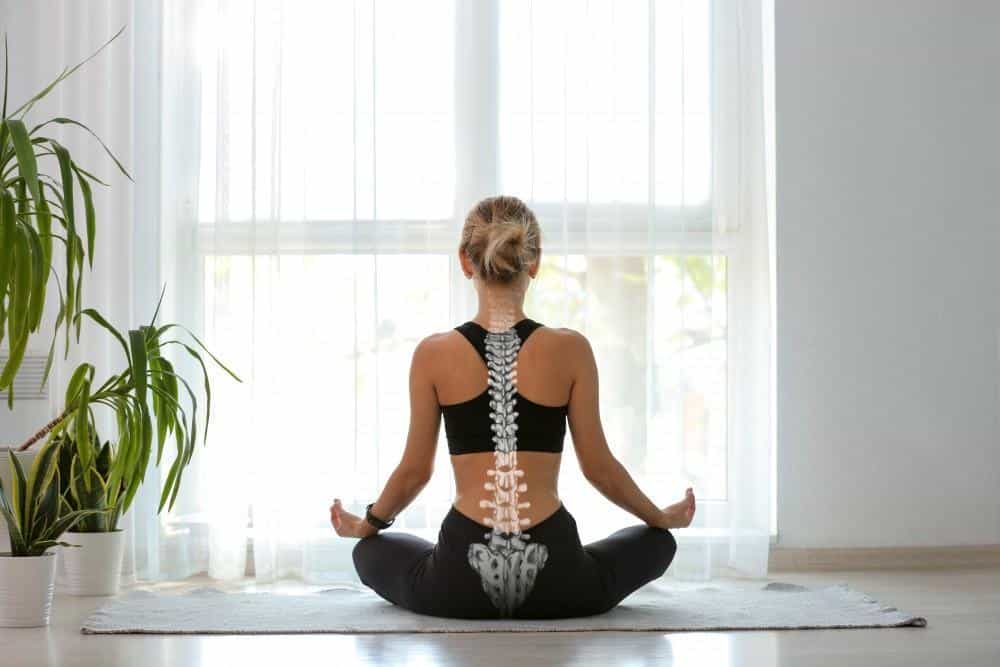The spine is an essential component of the body, allowing you to stand, sit, walk, and run. It houses the spinal cord, provides shock absorption, and prevents injury to the nerves and other vital aspects of the spine.
It isn’t uncommon to have aches and pains in the spine, especially as you age – but they shouldn’t affect your normal activities. When back or neck pain worsens, it limits what you can do and enjoy.
If you’re ready to take control of your spine health before it begins degenerating, Dr. Jordi Kellogg and the team at Kellogg Brain and Spine can help.
Dr. Kellogg is an esteemed neurosurgeon who offers customized treatments and preventive care to keep your spine in optimal health, regardless of your age.
What happens to your spine as you age?
Every part of your body ages just like you, including your spine. It’s typical for the bones, discs, and nerves to degenerate as you age, sometimes causing mild aches and pains.
However, if you don’t take care of your spine early on, you’re at risk for more severe conditions earlier in life. Some of the spine problems that affect people as they age include:
- Degenerative disc disease
- Spinal stenosis
- Spondylolisthesis
- Compression fractures
- Facet osteoarthritis
- Bulging or herniated discs
- Osteoporosis
Genetics are definitely a factor in developing spine conditions, but so are lifestyle choices and how you care for your body. Sometimes, spinal changes are mild and don’t cause any issues, while others are debilitating.
Knowing what to do early on for a healthy spine allows you to stay pain-free into adulthood. Taking care of your spine is simple and essential for staying active.
Seven habits for a healthy spine
Whether you’re already dealing with back or neck pain or at risk and want to prevent any issues, there are various ways to take care of your spine. Dr. Kellogg and his team offer the following seven habits to maintain spine health throughout your life:
1. Work on your core
Your core, or abdominal muscles, helps support the spine and the rest of the body. To keep your spine healthy and maintain a good posture, focus on your core muscles by doing crunches, planks, and other abdominal exercises.
2. Focus on posture
Believe it or not, how you sit and stand may determine how much pain you’ll have later in life. Poor posture strains the muscles and nerves around the spine, which then stresses the spine itself. To keep your spine straight, focus on sitting up straight and standing with your shoulders above the hips.
3. Eat a healthy diet
A healthy diet is essential for maintaining your health – especially regarding weight. Obesity or being overweight puts unnecessary stress on your spine, which causes degeneration of the discs and other issues.
4. Keep moving
Sitting puts much stress on the spine, especially for long periods. To save your spine health, stay moving throughout the day. If you have a job that requires you to sit a lot, get up, and take breaks to prevent pain and reduce the load on the spine.
5. Try low-impact exercise
High-impact exercises such as running and jumping rope are challenging on the spine, especially the intervertebral discs, which absorb shocks. Keeping your spine safe is as simple as choosing exercises like biking, swimming, and yoga to reduce strain and prevent pain.
6. Quit smoking
Smoking has various effects on the body, including constricting the blood vessels. Decreased blood flow to the spine leads to quicker degeneration and other issues in the discs and spinal nerves.
7. Stretch regularly
Stretching regularly keeps the body’s muscles, ligaments, and tendons loose and supple. Tight muscles strain the spine, while loose, flexible muscles help keep the spine safe and prevent injury
Call Kellogg Brain and Spine today to schedule a consultation for back or neck pain with Dr. Kellogg , or request an appointment on the website.


